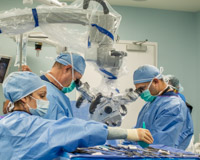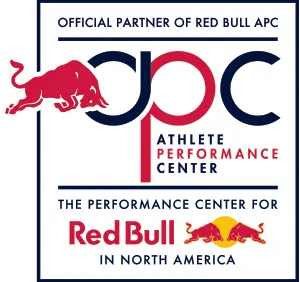By Sarah Sotoodeh
When Evan Lysacek travels to Russia in February to defend his Olympic gold medal title, he will be attempting a feat that has been done only once before in the history of figure skating at the Games—winning gold again. While the journey this time may seem tougher for the 28-year-old American, who had surgery for a sports hernia November 2012, a groin injury, and more recently an abdominal tear and a torn labrum in his left hip that occurred in August, Lysacek is focused on the future. I spoke to him in between sets during training at the Soft Tissue Center in late October about his preparation, his thoughts on Russia and what he looks forward to most.
Q: What aspect of the Olympics are you most excited about?
Lysacek: Besides competing, which is number one, I think it’s cool that the games are in Russia because to America and a lot of other countries around the world, I think there’s still some mystery involved with Russia and curiosity about what the culture is like nowadays. There’s been a major renaissance there over the last two decades. A lot of people know about the history of Russia from years and years ago—the czars and the incredible opulence of that era but now I think people don’t realize how important Olympic sports are to Russian culture. As much as there’s been some controversy surrounding these Games, I think overall they’ll play great hosts to the world because Vladimir Putin and the sports minister of Russia really take the Olympics Games extremely seriously, this is a huge deal for them to be hosting so I’m looking forward to the Games, I think they’ll put on a really incredible show and the world will be watching, no doubt.
Q: Have you ever been to Russia?
Lysacek: I’ve been to Russia many times, especially Moscow, St. Petersburg. Never been to Sochi.
Q: What are you up to now?
Lysacek: Right now I’m training at DISC. I just had surgery last November and started coming here. I’m training, getting stronger, still working on total fitness and really utilizing all the resources that DISC is offering.
Q: What about on-ice training?
Lysacek: I’m on the ice six days a week and its two to three hour sessions on the ice close by in El Segundo.
Q: Talk about what your focus is for the next few months.
Lysacek: In my sport specifically, the grading and judging system has changed a lot, it’s all numeric now. There’s a value for every step you do through the entire program and there’s thousands of steps going on, in addition to the really dangerous, risky tricks so the physicality overall. The sport has changed a lot and my focus is to not be spread thin, but be diversified and work on every aspect of my program to make sure that I am really at the highest level of elite performance in every step that I’m taking.
Q: This time around, do you feel more confident?
Lysacek: Well in the past skaters will win a World Championship or an Olympic Games and then move on. Very rarely have they even tried to go and repeat. Only one time has a skater actually repeated as Olympic Gold Medalist, that’s Dick Button in 1948 and 1952. It’s a large feat that I’m attempting for sure but I think with all the advancements in sports medicine and sports science which DISC has been very involved with and especially bringing to me. Doc has brought to me the latest in athletic techniques and Dr. Horrigan has brought the latest in physiotherapy and recovery—I really feel that working at DISC, I’m at the forefront of what’s going on in sports medicine and that’s helping me to go beyond the wall of figure skaters, which is 22, 23, 24 years old—now I’m 28 and still going.
Q: How are you feeling?
Lysacek: I’m still recovering, taking it one day at a time. I’m a good soldier so I’m obeying doctor’s orders and I just really try to listen to the professionals because as many times as I’ve been through this, as an athlete you accept when you start out that injuries are a part of sport for every athlete, for every sport. I’ve accepted that, but I still know I’m not a doctor and I listen to what my doctors and professionals here at DISC have to say.
Q: What’s a typical day for you?
Lysacek: I usually start at DISC in the morning, my workout can be anywhere from one to three to four hours, depending on the day. Then I go on the ice and I have two to three hour sessions on the ice. Sometimes I was coming back here to DISC in the evening for weightlifting and more strenuous workouts to build strength. It depends on my schedule—if I’m doing travel for work or if I’m getting ready to compete or for a show, and how tired I am or how much rehab I’m doing, so it all just depends, but predominately my training is done between here and Toyota Sports Center, off ice and on ice.
Q: How did it feel winning the gold medal at the 2010 Winter Olympics in Vancouver?
Lysacek: Besides it being such a great honor, only one person really wins every four years, it’s kind of a low statistic overall, so for it to be me—I was not necessarily the most talented skater in the group nor the best overall—but I was the best trained. I worked the hardest and that’s why I won. I’m not naïve to think that I was just on another level from the competition. The competition was incredible and I have great respect for my competitors—they are very fine athletes. I think I was fortunate in a lot of ways that my preparation came really to a head at the most opportune time in my life and I was appreciative that I had the opportunity to even find sports because it’s become my life, being an athlete. I think one of the other really satisfying aspects of it is, it’s kind of justification for a life of sacrifice. When I say ‘no I can’t go to a movie tonight, I can’t hang out with my friends, can’t come home for Christmas,' it gets confusing to people in your life if you’re a human being that has a life of why you’re sacrificing all this. When you say you’re setting out to do something that’s so grand, like a feat to win a gold medal at the Olympics, most people smile, some people support it and even fewer people believe it and to really make it a reality was kind of justification for all that sacrifice.
Q: What are some words you live by?
Lysacek: I think in sports overall there’s no room for arrogance or ego, you have to just put it all on the line and really open yourself up to the competition when you get out there. I try to just take it one day at a time and accept that as hard as I work and as prepared as I want to be, there’s always going to be someone younger, there’s always going to be someone stronger, there’s always going to be someone talented. For me, it’s just doing the best I can do and that’s what I’m doing here at DISC every day and that’s what I’m doing on the ice every day—really finding my own path to get to my goal and trying not to compare myself too much to others and what they’re doing.

About the author
discmdgroup DISC Sports & Spine Center (DISC) is a national leader in minimally invasive spine surgery, orthopedic surgery, and sports medicine care. Our spine surgeons set the standard in artificial disc replacement, spine fusion, discectomy, microdiscectomy and the full spectrum of spine procedures. The group’s orthopedic surgeons advance the state of joint preservation surgery and total joint replacement, including total knee replacement as well as total hip replacement. Our flagship surgery centers based in Newport Beach, Marina del Rey, and Carlsbad serve patients local to Los Angeles, Orange County and San Diego, as well as the rest of the country. Read more articles by discmdgroup.




